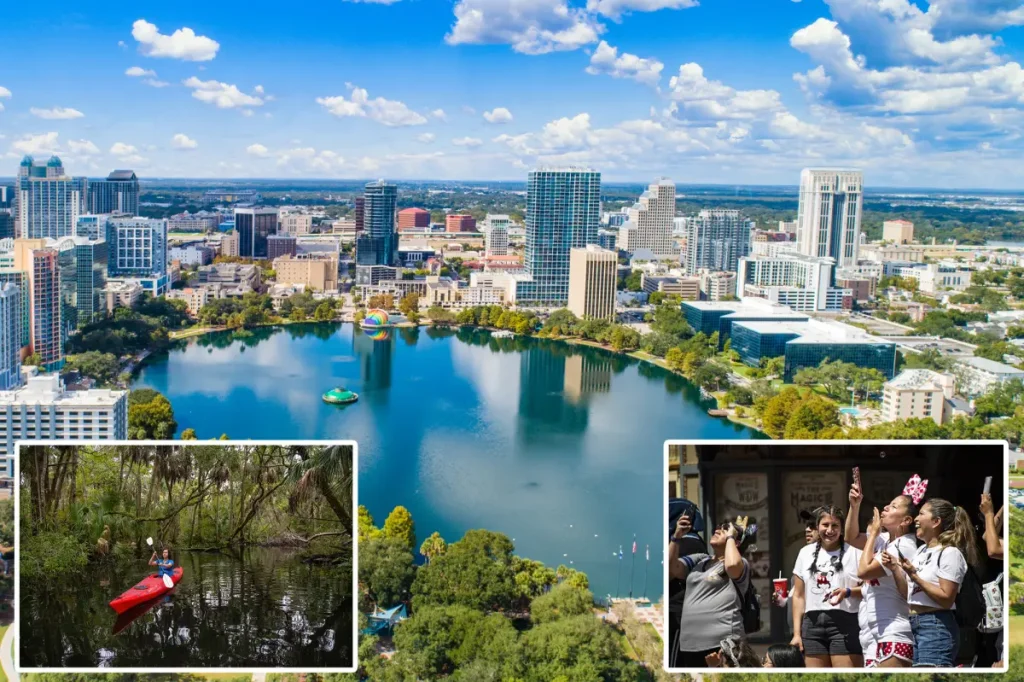Vacation Destinations That Boost Your Happiness: The Science of Feel-Good Travel
In a world where stress seems to constantly surround us, the transformative power of a vacation has never been more important. But not all destinations deliver the same emotional benefits, according to a fascinating new study by BookRetreats.com. Their Holiday Happiness Index has scientifically analyzed what makes certain travel spots particularly effective at boosting our mood and overall sense of well-being. This research comes at a perfect time, as travel trends show a significant shift—people are increasingly choosing destinations not just for landmarks or Instagram opportunities, but specifically for how these places make them feel.
The 2024 study reveals that relaxation has become the primary motivation for travel, with an overwhelming 73% of travelers listing it as their main reason for taking a vacation. Even more telling is that half of all travelers now explicitly state they’re traveling to improve their mental health and well-being. Working with Dr. Natalie Dattilo-Ryan, a Harvard-affiliated clinical psychologist and happiness expert, BookRetreats.com evaluated 47 global destinations through five critical “feel-good factors” that trigger our happiness hormones: natural sunlight exposure, quality sleep opportunities, access to healthy food options, time spent in natural settings, and opportunities for physical movement and exercise. “When we talk about feeling good,” Dr. Dattilo-Ryan explains, “we’re really talking about the release of happy hormones like serotonin, dopamine, endorphins, and oxytocin. These chemicals influence everything from mood and sleep to energy and digestion. And many of the things that trigger them, like sunlight, movement, food, and quality rest, are often part of a good holiday, if you choose the right destination.”
Orlando, Florida emerged as the top American destination for happiness, ranking third worldwide. The city’s impressive credentials include being among America’s greenest urban centers with an astonishing 258 square meters of green space per person—more than ten times what Los Angeles offers. Combined with nearly 3,000 annual hours of sunshine, Orlando creates an environment naturally conducive to happiness. While the theme park capital scored somewhat lower on healthy eating options and sleep quality metrics, the report notes that its abundance of sunshine, expansive outdoor spaces, and an “atmosphere built to lift spirits” more than compensate for these shortcomings. This finding challenges the notion that only quiet, remote destinations can provide meaningful wellness benefits—apparently, a city designed around fun and wonder can be just as effective at boosting our mood.
Chicago stands as the only other American city to earn a spot on the global happiness list, coming in at number 20 worldwide. The Windy City particularly excelled in green space access, ranking second among studied destinations with 180 square meters of natural area per person. The report specifically highlights how Lake Michigan’s shoreline parks have become integral to the city’s identity, offering residents and visitors alike critical access to nature within an urban setting. These findings underscore something many Chicagoans have long known intuitively—despite its reputation for harsh winters and urban challenges, the city’s commitment to public parks and lakefront accessibility creates unique opportunities for the kind of natural experiences that trigger our feel-good hormones.
European destinations dominated the top happiness rankings, with Lisbon, Portugal claiming the world’s happiest vacation destination title, followed by Helsinki, Finland in second place. Other European cities filling out the top ten include Athens (4th), Edinburgh (5th), Madrid (6th), Vienna (7th), Budapest (8th), Oslo (9th), and Vilnius (10th). This European dominance likely reflects several factors, including the continent’s general emphasis on work-life balance, walkable city centers that encourage physical activity, abundant green spaces, and food cultures that often prioritize fresh, healthy ingredients. Many European cities also benefit from cultural attitudes that encourage leisure time, outdoor dining, and social connection—all elements that stimulate our happiness hormones.
The Holiday Happiness Index offers valuable guidance for travelers seeking more than just a change of scenery—it provides a roadmap for those wanting their vacation to deliver genuine psychological benefits. The findings suggest that the most happiness-inducing destinations share certain characteristics: abundant natural light, accessible green spaces, opportunities for physical movement, healthy food options, and environments conducive to quality rest. Yet the diversity of cities in the top rankings—from theme park-centered Orlando to historic Athens to nature-rich Helsinki—demonstrates there’s no single formula for a happiness-inducing destination. Instead, the perfect mood-boosting vacation likely depends on matching these science-backed factors with your personal preferences and needs. As travel continues to evolve from pure recreation toward intentional well-being, this research offers a timely reminder that where we choose to spend our precious vacation time can significantly impact not just our memories, but our mental and emotional health as well.














